Build resilient infrastructure, promote inclusive and sustainable industrialization and foster innovation

Build resilient infrastructure, promote inclusive and sustainable industrialization and foster innovation
Enabling microfinancing in developing countries and ensuring everyone has the needed resources to sustain their household or build a new successful venture was at the core of the Loan Management development. The system is inspired by how fintech startups changed the financial sector and is designed with a client-centric approach.
Even though the product has all the features and legal requirements of being used in developed economies, its potential is better leveraged in societies where the resources are scarce since it automatizes most of the mandatory processes and reduces the response times, swiftly conceding credit to the ones in need.
From the financial organization POV, Loan Management also has its advantages: it reduces operative costs, makes sure the organization is compliant with the legislation, and identifies, measures, keeps track and controls the portfolio’s exposure.
Potential Impact of this Product on the 9th SDG
9.1 Develop quality, reliable, sustainable and resilient infrastructure, including regional and transborder infrastructure, to support economic development and human well-being, with a focus on affordable and equitable access for all;
9.4 By 2030, upgrade infrastructure and retrofit industries to make them sustainable, with increased resource-use efficiency and greater adoption of clean and environmentally sound technologies and industrial processes, with all countries taking action in accordance with their respective capabilities.
Given the multiple variables at stake, having a holistic view of a country’s revenue/tax collection and expenditures can be challenging. However, not having a vision of the balance can be a more demanding challenge for decision-makers. Quidgest’s approach on this subject is complex but simple to understand: centralize all the information in a single platform by providing common ground corporate services.
Individual departments usually carried out something that is now done a single time, reducing unnecessary duplication of effort, harmonizing policies, and consolidating relevant data under a single umbrella platform. Transparency, international credibility, and better resource management are some of the benefits of Quidgest’s Public Finance Shared Services solution.
Potential Impact of this Product on the 9th SDG
9.b upport domestic technology development, research and innovation in developing countries, including by ensuring a conducive policy environment for, inter alia, industrial diversification and value addition to commodities
Institutions which already adopted this solution
Coordination and Regional Development Committees (Portugal); Portuguese Accreditation Institute (IPAC); Attorney General’s Office (Portugal); International Relations Fund (Portugal); National Institute for Agricultural and Veterinary Research (Portugal); Portuguese National Assembly
In a world where resources are scarce and time is precious, it is vital to efficiently manage both. Business fields where vehicles carry enormous importance can always improve their management.
Systems such as the Public Fleet Management Shared Services not only provide the immediate answer to this problem but also a clear and fast return on investment. The solution is able to track the fleet, manage operational costs as well as managing the security of the driver and its load, and monitoring the service provided based on personalized Key Performance Indicators.
Potential Impact of this Product on the 9th SDG
9.4 By 2030, upgrade infrastructure and retrofit industries to make them sustainable, with increased resource-use efficiency and greater adoption of clean and environmentally sound technologies and industrial processes, with all countries taking action in accordance with their respective capabilities.
Entities which already adopted this product
Lisbon City Hall
9.1 Develop quality, reliable, sustainable and resilient infrastructure, including regional and transborder infrastructure, to support economic development and human well-being, with a focus on affordable and equitable access for all;
9.2 Promote inclusive and sustainable industrialization and, by 2030, significantly raise the industry’s share of employment and gross domestic product, in line with national circumstances, and double its share in the least developed countries;
9.3 Increase the access of small-scale industrial and other enterprises, in particular in developing countries, to financial services, including affordable credit, and their integration into value chains and markets;
9.4 By 2030, upgrade infrastructure and retrofit industries to make them sustainable, with increased resource-use efficiency and greater adoption of clean and environmentally sound technologies and industrial processes, with all countries taking action in accordance with their respective capabilities;
9.5 Enhance scientific research, upgrade the technological capabilities of industrial sectors in all countries, in particular developing countries, including, by 2030, encouraging innovation and substantially increasing the number of research and development workers per 1 million people and public and private research and development spending;
9.A Facilitate sustainable and resilient infrastructure development in developing countries through enhanced financial, technological and technical support to African countries, least developed countries, landlocked developing countries and small island developing States;
9.B Support domestic technology development, research and innovation in developing countries, including by ensuring a conducive policy environment for, inter alia, industrial diversification and value addition to commodities;
9.C Significantly increase access to information and communications technology and strive to provide universal and affordable access to the Internet in the least developed countries by 2020.
Quidgest is a global technology company headquartered in Lisbon and a pioneer in intelligent software modeling and generation. Through its unique generative AI platform, Genio, develops complex, urgent, and specific systems, ready to evolve continuously, flexible, and scalable for various technologies and platforms. Partners and large organizations such as governments, multinational companies, and global multilateral institutions use Quidgest’s solutions to achieve their digital strategies.
R. Viriato, 7
1050-233 Lisboa | Portugal
Tel. +351 213 870 563
quidgest@quidgest.com